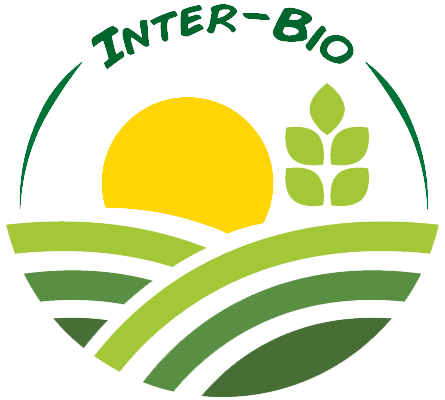INTER-BIO, fully agrees with IFOAM EU, as a member of this organization and welcomes recent initiatives to strengthen the role of organic farming in the EU’s ” Farm to Fork” (F2F) program. The EU target of reaching 25% green land adoption rate by 2030, as well as measures to stimulate demand for green products through promotion and public procurement schemes are welcome and we hope that Romania will align.
Jan Plagge, President of IFOAM EU, recently stated that setting an EU target for organic land is a benchmark decision that puts organic farming at the heart of Europe’s transition to agroecology. He also emphasized the need to transform EU agriculture if we want to tackle the climate and biodiversity crisis and make our farming systems stronger.
“The EU organic movement considers organic farming to be a successful economic model for farmers, with proven benefits for the environment, and now the vision is clear at the European Commission level and the responsible European countries. We do not know how clear it is for us in Romania where the adoption of organic farming is only 2% at present and where there is a lack of analysis by the authorities to explain that the current drought is due to wrong policies on sustainable economic and ecological development. In our country, the discussions about a sustainable food system are extremely vague, ”said Costin Lianu, President of Inter-Bio.
As IFOAM draws attention, in the EU, the biodiversity targets are not achieved on their own, but only if they are taken into account by Member States, including Romania, in the negotiations on the ongoing reform of the Common Agricultural Policy (CAP). We cannot complain about the drought and pandemic without considering investing in organic farming as a good and strategic idea. We continue to neglect our own strengths despite the benefits of the soil. Even in the conditions of the current drought, the lands that are cultivated organically were more resistant, from the information we had from the farmers, Costin Lianu continued.
“The organic movement calls on the European Parliament, the Council and the Commission to fully integrate the objectives of the F2F and Biodiversity strategies into the CAP Strategic Plan, to raise the level of ambition and to make the CAP an effective tool to stimulate and help farmers move forward with agro-ecology. The EU needs a new CAP to reward farmers for their contribution to public goods, such as the conservation of our natural resources, ”said Jan Plagge.
According to IFOAM EU, reaching 25% organic land in the EU by 2030 is achievable if the CAP provides the necessary remuneration for the benefits of green conversion and maintenance, creationh of rural development policies or innovative tools such as green ecosystems. The inclusion of demand-side measures, such as promotions in order to increase the share of organic products in schools and hospitals through green public procurement, is a smart choice, as this “push-pull” approach has proved successful for the development of organic farming in countries such as Denmark.
IFOAM.EU also welcomes the intention to launch an ambitious EU action plan for organic farming, which will support land conversion, supply chain development, research, innovation and market development. With a reformed CAP and a solid action plan, including time-bound targets and a dedicated budget, there will be a good basis for increasing the number of organic lands and reaching the 2030 target.
